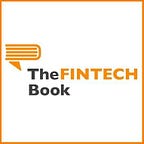Future of privacy for financial services: from physical vaults and bank secrecy to data leverage and digital literacy?
by: Matthieu Soule
Twitter: @matthieusoule
From data collection to data leverage: first experimenting new value-added services for individuals and secondly monetizing the service
Banks today could be seen as giant technology actors with their datacenters which manage billions of transactions a day, and millions of “customer events” from cash-withdrawals to account statement viewing on a mobile app, and all the information networks formed by these economic actors. I like to say that at a macro-level, a large bank such as BNP Paribas is the equivalent of an almost real-time INSEE (the French national statistic and economic studies agency): its clients represent a very good sample of economic agents in France and in Europe by their decisions captured by their transaction, credit, investment and deposit actions.
At a micro-level, when an individual uses the bank to host their main account, the bank is able to identify the sources of income, large categories of expenditure and the economic links between other individuals and businesses. The issue for a bank is to not use this data in an inappropriate manner from the client’s, and also regulator’s, point of view.
The new possibilities of leveraging this data for new services and products are phenomenal: from individual to corporate services, the usage and combination of data is undoubtedly a great source of the future innovation that will take place in the financial services sector.
There are real economic and social values in cross-referencing data. But it has to be done with consent and what I call “dynamic consent”. You always have to carry out a check and balance in order to protect individuals from data-mixing and abusive use of data. This is coming back to the dilemma between opt-in and opt-out regarding data protection: there is a need to make the consent process frictionless, and also to allow the person to be removed whenever they do not feel comfortable.
Editors Notes: This entry has been submitted to the FINTECH Book, the world’s 1st globally crowd-sourced book on FINTECH. Readers that enjoyed this initial abstract are invited to share and like it so that it may be featured in a longer version.
The FINTECH Book is due to be released in April 2016 and is available for Pre-Order on Amazon.
